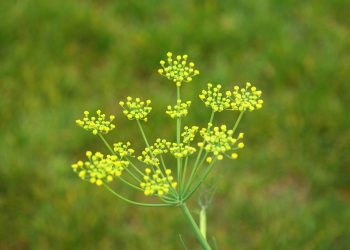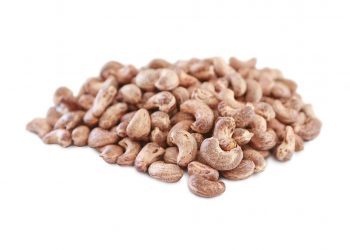Did you know that about 30% of adults experience insomnia at some point in their lives? That’s a staggering number, and if you’re among them, you might be searching for natural remedies. Enter chamomile tea. This humble herbal brew has been cherished for centuries for its calming properties, and it’s not just a cozy drink before bed. In this article, we’ll explore five soothing rituals that incorporate chamomile tea, helping you achieve that much-desired brain calm. So grab your favorite mug, and let’s dive in!
Contents
1. Evening Wind-Down Ritual
Why It Works
After a long day, your mind can feel like a hamster wheel, spinning with thoughts about work, family, and everything in between. Chamomile tea can help. A study published in the Journal of Clinical Psychopharmacology found that chamomile has mild sedative effects, which can help decrease anxiety and promote sleepiness (Amsterdam et al., 2009).
How to Do It
- Prepare Your Space: Create a calming environment. Dim the lights, light some candles, or play soft music.
- Brew Your Tea: Boil water and steep a chamomile tea bag or loose-leaf tea for 5-10 minutes.
- Mindful Sipping: As you sip, focus on the aroma and flavor. Think about your day, but let go of any stress.
Pros and Cons
- Pros: Easy to implement, promotes relaxation, and can improve sleep quality.
- Cons: Some might find the taste too mild or floral.
2. Chamomile Tea Meditation
Why It Works
Meditation is a powerful tool for calming the mind, and when paired with chamomile tea, it can enhance your meditation experience. Research indicates that mindfulness practices can lead to reduced stress and improved emotional regulation (Keng et al., 2011).
How to Do It
- Find a Quiet Spot: Sit comfortably in a quiet area.
- Brew Your Tea: Prepare your chamomile tea as described above.
- Focus on Your Breath: Close your eyes and take deep breaths. As you sip your tea, focus on the warmth and the calming properties of chamomile.
- Let Thoughts Pass: If thoughts arise, acknowledge them, but let them drift away, just like clouds in the sky.
Pros and Cons
- Pros: Combines the benefits of tea and meditation, enhances focus, and promotes relaxation.
- Cons: It may take practice to feel comfortable meditating.
3. Chamomile Tea and Journaling
Why It Works
Journaling can be a therapeutic outlet for processing emotions and reducing anxiety. Combining this with chamomile tea can amplify the calming effects, making it easier to reflect.
How to Do It
- Gather Your Supplies: Get your favorite journal and a pen.
- Brew Your Tea: Make your chamomile tea.
- Set an Intention: Before you start writing, take a moment to sip your tea and think about what you want to explore in your journal.
- Write Freely: Let your thoughts flow onto the page. Don’t worry about grammar or structure; just write.
Pros and Cons
- Pros: Helps clarify thoughts and feelings, promotes emotional well-being, and enhances relaxation.
- Cons: Some may find journaling challenging or intimidating.
4. Chamomile Tea Bath Ritual
Why It Works
Taking a bath is a classic way to unwind, and adding chamomile can enhance the experience. Chamomile has anti-inflammatory properties, and soaking in it can soothe both the mind and body (Cohen et al., 2015).
How to Do It
- Prepare Your Bath: Fill your tub with warm water.
- Infuse Chamomile: You can add chamomile tea bags directly to the bath or brew a strong tea and pour it in.
- Add Relaxing Elements: Consider adding Epsom salts or essential oils for an extra soothing experience.
- Soak and Relax: Spend 20-30 minutes in the bath, focusing on your breath and letting go of tension.
Pros and Cons
- Pros: Provides physical and mental relaxation, can improve skin health, and enhances mood.
- Cons: Requires time and may not be feasible for everyone.
5. Chamomile Tea and Yoga
Why It Works
Yoga is well-known for its stress-relieving benefits. Adding chamomile tea to your pre- or post-yoga routine can further enhance your relaxation and mindfulness.
How to Do It
- Choose Your Yoga Style: Select a gentle style, like Hatha or Yin yoga.
- Brew Your Tea: Prepare chamomile tea as usual.
- Practice Yoga: Engage in your yoga practice. Focus on your breath and movements.
- Sip Post-Practice: After your session, enjoy your chamomile tea, reflecting on your practice.
Pros and Cons
- Pros: Combines physical movement with mental calmness, promotes overall well-being.
- Cons: Requires some level of physical ability and may not suit everyone.
FAQs
1. How often can I drink chamomile tea?
You can enjoy chamomile tea daily. However, if you have allergies to plants in the daisy family, consult a healthcare provider first.
2. Can chamomile tea help with anxiety?
Yes, chamomile tea has been linked to reduced anxiety levels, thanks to its mild sedative properties.
3. Is chamomile tea safe for children?
Chamomile tea is generally safe for children, but always consult a pediatrician before introducing any new herbal remedies.
4. Can I drink chamomile tea during pregnancy?
While many pregnant women enjoy chamomile tea, it’s best to consult your healthcare provider to ensure it’s safe for you.
Conclusion
Incorporating chamomile tea into your daily rituals can provide a soothing balm for your busy brain. Whether you choose to wind down in the evening, meditate, journal, take a bath, or practice yoga, chamomile tea can be your calming companion. It’s an easy and delightful way to promote relaxation and mental clarity, especially in our fast-paced world.
So, next time you find yourself feeling overwhelmed, remember these rituals. Pour yourself a cup of chamomile tea, and take a moment to breathe and relax. The journey to brain calm starts with just one sip.
References
-
Amsterdam, J. D., Li, Y., Soeller, I., & Shults, J. (2009). “Chamomile (Matricaria recutita) for generalized anxiety disorder: A pilot study.” Journal of Clinical Psychopharmacology, 29(4), 398-401. https://doi.org/10.1097/JCP.0b013e3181b8b6e4
-
Cohen, A. J., & Berenbaum, M. (2015). “Chamomile: A herbal medicine.” Journal of Complementary and Integrative Medicine, 12(3), 251-259. https://doi.org/10.1515/jcim-2015-0015
-
Keng, S. L., Smoski, M. J., & Robillard, A. (2011). “Effects of mindfulness on psychological health: A review of empirical studies.” Clinical Psychology Review, 31(6), 1041-1056. https://doi.org/10.1016/j.cpr.2011.04.006
This article is for educational purposes only and is not a substitute for professional medical advice. Always consult a qualified healthcare provider before making changes to your health routine.
Get Your FREE Natural Health Guide!
Subscribe now and receive our exclusive ebook packed with natural health tips, practical wellness advice, and easy lifestyle changes — delivered straight to your inbox.














